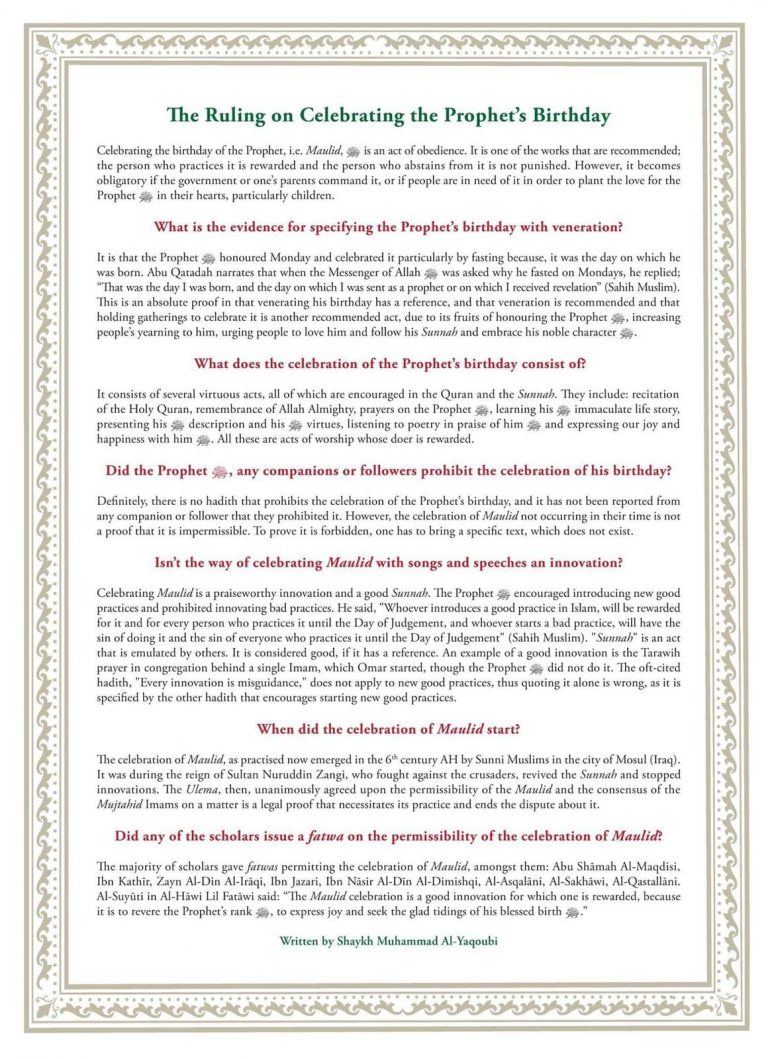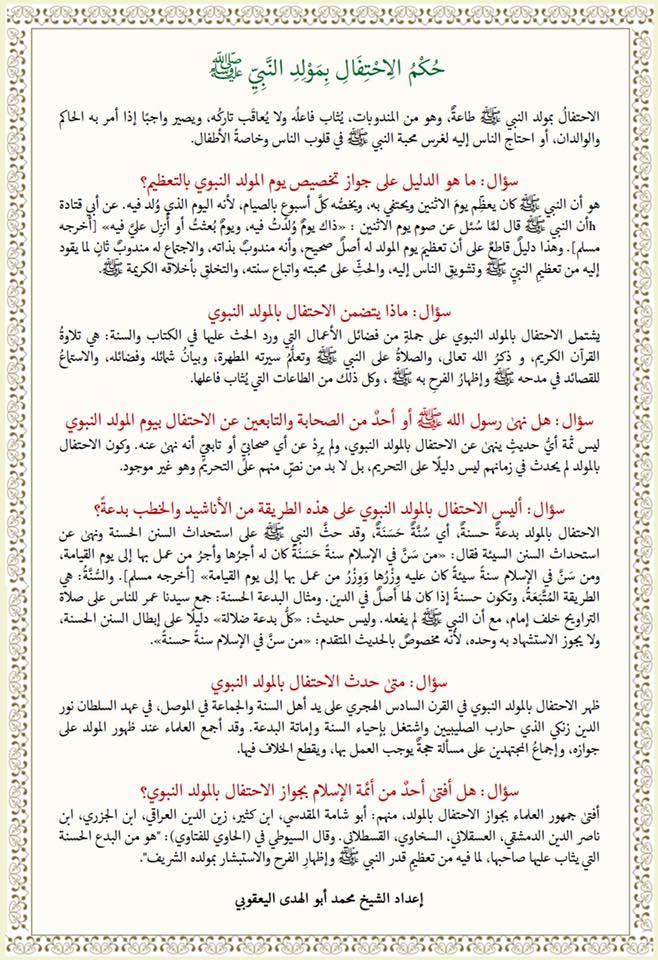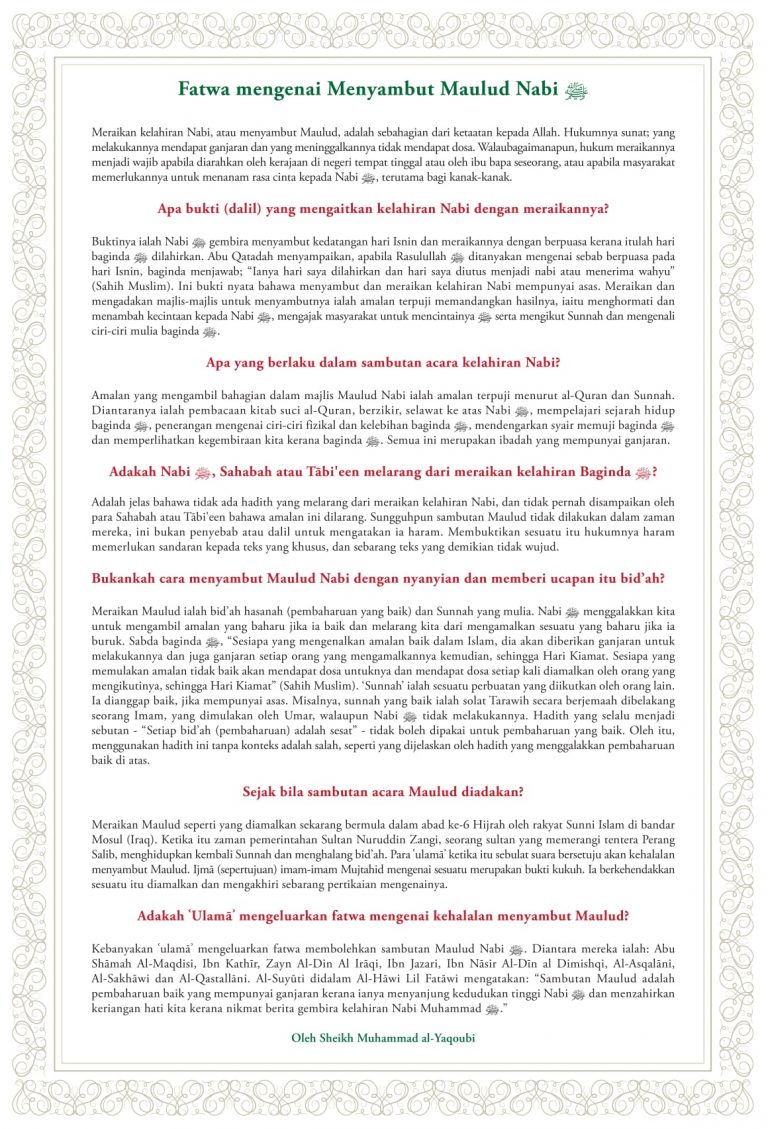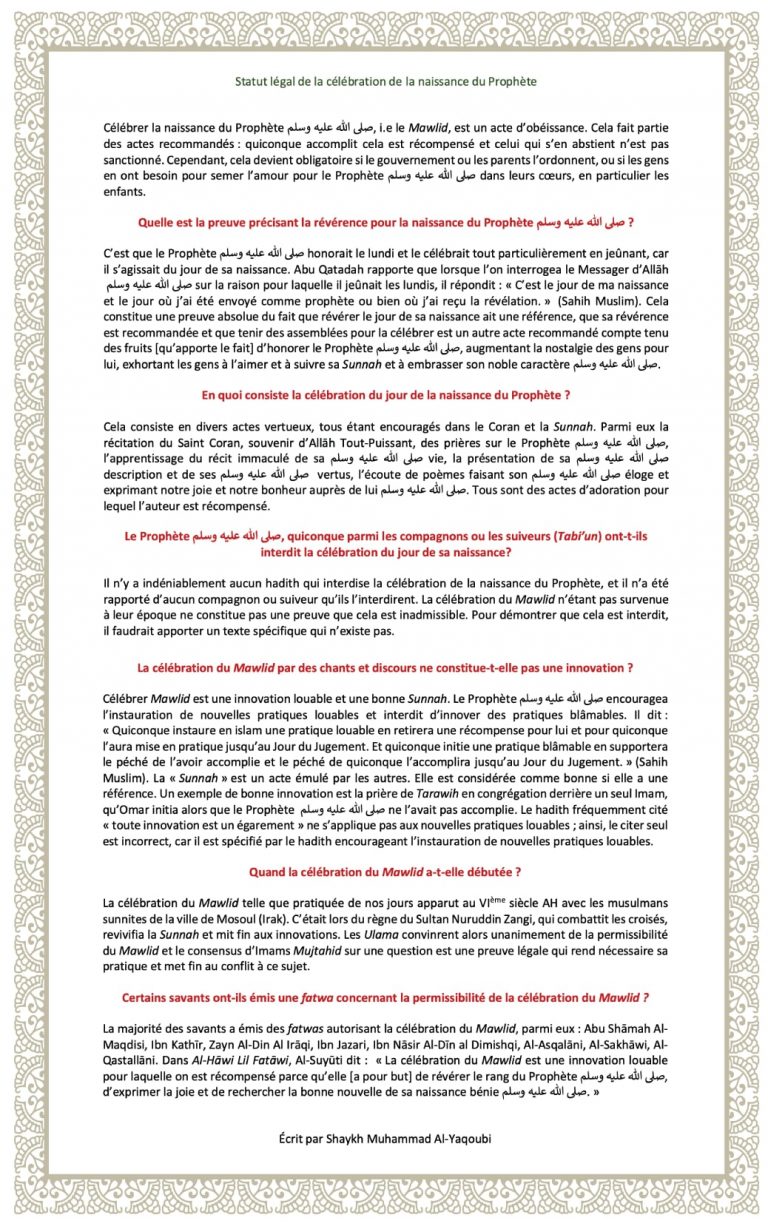STATEMENT – FATWA
the ruling on
Celebrating the Prophet's Birthday

By Shaykh Muhammad al-Yaqoubi
Issued 16 November 2019 facebook.com/shaykhalyaqoubi/

Text
It is that the Prophet ﷺ honoured Monday and celebrated it particularly by fasting because, it was the day on which he was born. Abu Qatadah narrates that when the Messenger of Allah ﷺ was asked why he fasted on Mondays, he replied; “That was the day I was born, and the day on which I was sent as a prophet or on which I received revelation” (Sahih Muslim). This is an absolute proof in that venerating his birthday has a reference, and that veneration is recommended and that holding gatherings to celebrate it is another recommended act, due to its fruits of honouring the Prophet ﷺ, increasing people’s yearning to him, urging people to love him and follow his Sunnah and embrace his noble character ﷺ.
Definitely, there is no hadith that prohibits the celebration of the Prophet’s birthday, and it has not been reported from any companion or follower that they prohibited it. However, the celebration of Maulid not occurring in their time is not a proof that it is impermissible. To prove it is forbidden, one has to bring a specific text, which does not exist.
Celebrating Maulid is a praiseworthy innovation and a good Sunnah. The Prophet ﷺ encouraged introducing new good practices and prohibited innovating bad practices. He said, “Whoever introduces a good practice in Islam, will be rewarded for it and for every person who practices it until the Day of Judgement, and whoever starts a bad practice, will have the sin of doing it and the sin of everyone who practices it until the Day of Judgement” (Sahih Muslim). “Sunnah” is an act that is emulated by others. It is considered good, if it has a reference. An example of a good innovation is the Tarawih prayer in congregation behind a single Imam, which Omar started, though the Prophet ﷺ did not do it. The oft-cited hadith, “Every innovation is misguidance,” does not apply to new good practices, thus quoting it alone is wrong, as it is specified by the other hadith that encourages starting new good practices.
The celebration of Maulid, as practised now emerged in the 6th century AH by Sunni Muslims in the city of Mosul (Iraq). It was during the reign of Sultan Nuruddin Zangi, who fought against the crusaders, revived the Sunnah and stopped innovations. The Ulema, then, unanimously agreed upon the permissibility of the Maulid and the consensus of the Mujtahid Imams on a matter is a legal proof that necessitates its practice and ends the dispute about it.
The majority of scholars gave fatwas permitting the celebration of Maulid, amongst them: Abu Shāmah Al-Maqdisi, Ibn Kathīr, Zayn Al-Din Al-Irāqi, Ibn Jazari, Ibn Nāsir Al-Dīn Al-Dimishqi, Al-Asqalāni, Al-Sakhāwi, Al-Qastallāni. Al-Suyūti in Al-Hāwi Lil Fatāwi said: “The Maulid celebration is a good innovation for which one is rewarded, because it is to revere the Prophet’s rank ﷺ, to express joy and seek the glad tidings of his blessed birth ﷺ.”















